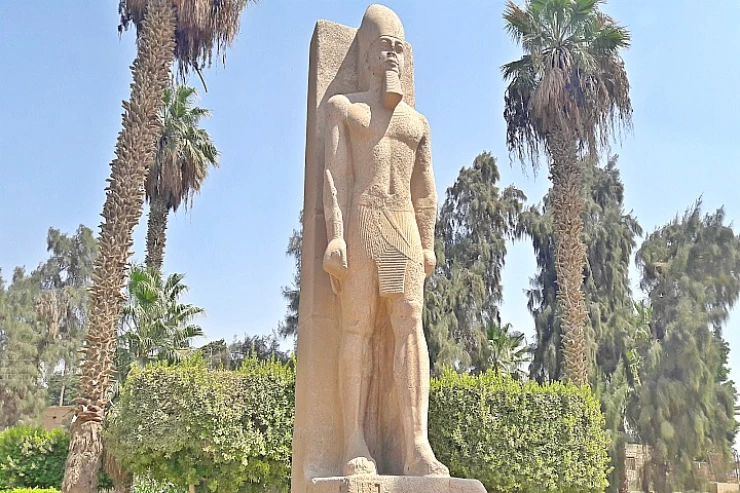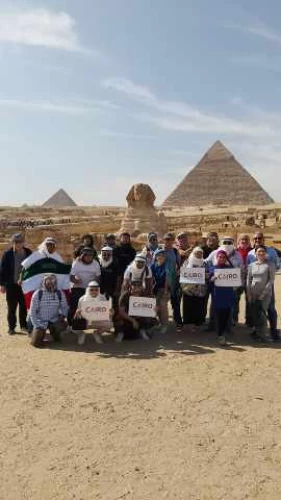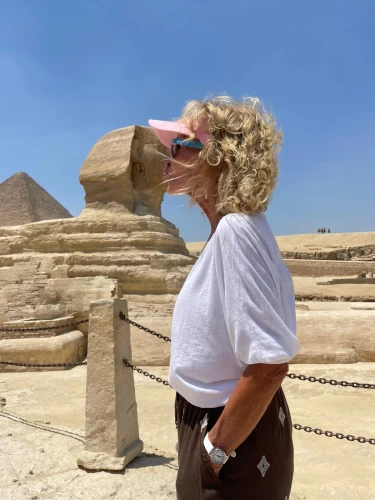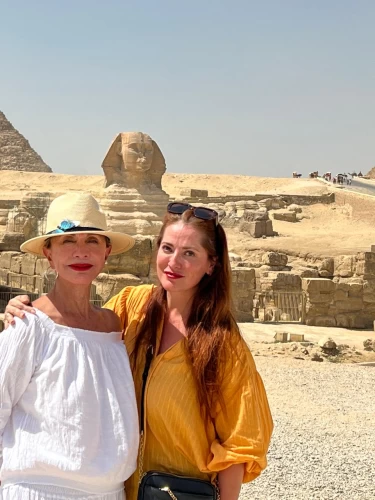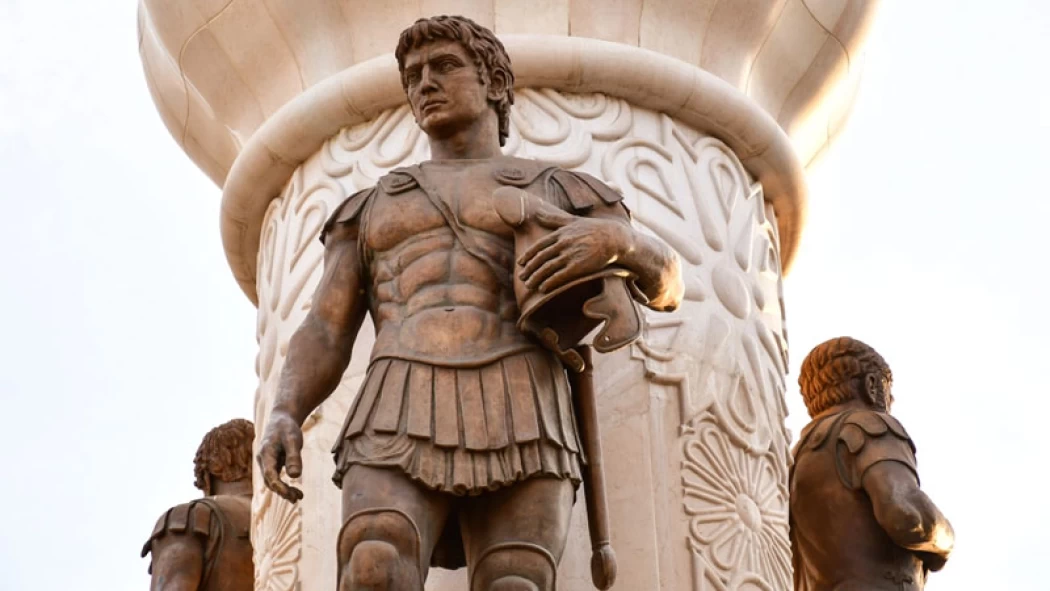
Alexander the Great
Alexander the Great
Supporter and propagator of Hellenistic culture, the King of Macedonia, the Pharaoh of Egypt, the hegemon of the Hellenic League, and the Shah of the Persian Empire. He conquered the Persian Empire—from Asia Minor to Egypt, Pakistan, Afghanistan, and India—in 12 years.
He, like all real men, was called Alexander III of Macedon, and eventually Alexander the Great by others. He was born in 356 BC in Pella, the Macedonian capital, being the son of King Philip II and Queen Olympias. From an early age, he could show great intelligence and ambition. To be educated with exceptional instruction under his own father, he had to read and study for the most part with Aristotle, who taught him in the corridors of philosophy, science, and military strategy. This education would mold Alexander later into a talent that would shape him as one of the greatest military minds of history.
Rise to Power
At the age of 20, in 336 BCE, Alexander was made king of Macedon after the assassination of his father. His first acts associated with consolidation were those aimed at putting down rebellions in Greece and at claiming leadership over the Hellenic League. The Greeks under his command had their eye on the Persians and his father's vision-dream—to realize conquest for the Persian Empire.
Alexander of Macedonia
Alexander the Great died, aged 33, in 323 B.C., after a life of conquest. His bravery and legendary deeds left much inspiration not only to himself but also to politicians and historians who have followed his ambitious journey throughout history.
On the political and military plane, his educator was his father (Philip II, king of Macedonia from 359 B.C. and conqueror of Greece in 338 B.C.). Instead, his intellectual teacher was the Greek philosopher Aristotle, who approached him with the reading of the great Homeric poems and made him passionate about Greek culture by transmitting the idea of the superiority of the Greeks over the barbarian peoples and, in particular, the Persians.
At just 16 years old, following an absence from his father, Alexander the Great gained the regency of the Kingdom. At 18 he offered his first major military test, fighting bravely in the battle of Chaeronea in 338 B.C., in which the Macedonians defeated the troops of the Greeks. In 336 B.C. Alexander the Great became king of Macedonia after the assassination of his father Philip at the hands of Pausanias, one of his bodyguards.
Alexander's accession to the throne was not easy. Philip's death created government problems and awakened the hopes of independence of Greek cities less willing to accept the authority of Macedonia. It also blocked the expedition that the Macedonian king was setting up to invade Asia and defeat the Persians.
The end of Ancient Egypt began with the invasion lost in 525 B.C., and, in 332 B.C., Alexander the Great occupied the country and founded a new kingdom:
The conquest of Alexander the Great did not find great resistance in the population; on the contrary, given the hatred that wound among the Egyptians towards the Persians, the Macedonian king was welcomed almost as a liberator.
Alexander the Great founded Alexandria in Egypt, the capital of the country for several centuries. Upon his death, the government passed to Ptolemy, who transformed Alexandria into a powerful economic center that dominated the trade routes of the Mediterranean Sea and the Aegean Sea. During the Ptolemaic period, the temples of Luxor, Aswan, Esna, Edfu, and Kom Ombo were built, and Egypt recovered its ancient importance once again. Sin preocuparse de cómo entender los términos clave de la historia egipcia, contaremos con un guía egiptólogo, que responderá a sus preguntas.
Then, for those traveling to the city of Alexandria, founded by Alexander, and for those who would wish to take advantage of its many beautiful coastal views, here at Cairo Top Tours, we can accommodate you with that! We have daily tour options from the Alexandria port to all other places in Egypt for more information about such a trip. Also, we do provide a well-informed tour guide who could pass for an effective educator on Alexandria's rich history.
The great conqueror Alexander would go beyond the gory battlegrounds across the Persian Empire to capture lands that stretched almost from his birthplace of Greece to the northern fringes of India. He created a new culture in which Greek ideals mixed with the already prevailing cultures in the territories conquered as to language, politics, art and literature, and religion.
The history of Egypt will contain the Egyptian civilization, characterized by great heroes like Alexander the Great, for those who are interested in learning about the history of Egypt.
Supporter and propagator of Hellenistic culture, the King of Macedonia, the Pharaoh of Egypt, the hegemon of the Hellenic League, and the Shah of the Persian Empire. He conquered the Persian Empire—from Asia Minor to Egypt, Pakistan, Afghanistan, and India—in 12 years.
He, like all real men, was called Alexander III of Macedon, and eventually Alexander the Great by others. He was born in 356 BC in Pella, the Macedonian capital, being the son of King Philip II and Queen Olympias. From an early age, he could show great intelligence and ambition. To be educated with exceptional instruction under his own father, he had to read and study for the most part with Aristotle, who taught him in the corridors of philosophy, science, and military strategy. This education would mold Alexander later into a talent that would shape him as one of the greatest military minds of history.
At the age of 20, in 336 BCE, Alexander was made king of Macedon after the assassination of his father. His first acts associated with consolidation were those aimed at putting down rebellions in Greece and at claiming leadership over the Hellenic League. The Greeks under his command had their eye on the Persians and his father's vision-dream—to realize conquest for the Persian Empire.
Alexander the Great died, aged 33, in 323 B.C., after a life of conquest. His bravery and legendary deeds left much inspiration not only to himself but also to politicians and historians who have followed his ambitious journey throughout history.
On the political and military plane, his educator was his father (Philip II, king of Macedonia from 359 B.C. and conqueror of Greece in 338 B.C.). Instead, his intellectual teacher was the Greek philosopher Aristotle, who approached him with the reading of the great Homeric poems and made him passionate about Greek culture by transmitting the idea of the superiority of the Greeks over the barbarian peoples and, in particular, the Persians.
Alexander's accession to the throne was not easy. Philip's death created government problems and awakened the hopes of independence of Greek cities less willing to accept the authority of Macedonia. It also blocked the expedition that the Macedonian king was setting up to invade Asia and defeat the Persians.







